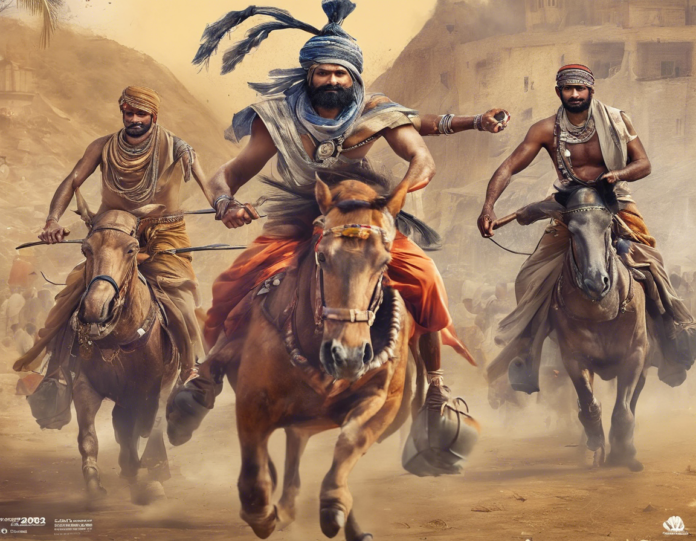The month of Sawan, also known as Shravan, holds immense significance and importance in the Hindu calendar. It falls during the monsoon season, usually between July and August, and is dedicated to Lord Shiva. Sawan 2023 is right around the corner, and devotees are gearing up to observe this auspicious month with devotion, fasting, and various rituals.
In this comprehensive guide, we will explore the various customs and traditions associated with Sawan, the significance of this month, how it is celebrated, and some dos and don’ts for devotees looking to make the most of this sacred period.
Understanding the Significance of Sawan
The Month of Lord Shiva
Sawan is considered one of the holiest months in the Hindu calendar, particularly for devotees of Lord Shiva. It is believed that Lord Shiva is especially pleased during this time, and prayers and offerings made to him are said to be highly auspicious.
The Story of Sawan
According to Hindu mythology, the churning of the ocean by the gods and demons took place during the month of Sawan. It is said that during this churning, a pot of poison emerged from the ocean, threatening to destroy the world. Lord Shiva drank the poison to save the universe, earning him the title of Neelkanth (the one with a blue throat).
Importance of Fasting
Fasting is a common practice during the month of Sawan, with devotees abstaining from certain foods on specific days of the week. Mondays are considered especially sacred, as they are dedicated to Lord Shiva. Many devotees observe Sawan Somvar (Monday) fasts to seek the blessings of the deity.
How to Celebrate Sawan
Visiting Shiva Temples
Visiting Shiva temples and offering prayers is a common practice during Sawan. Devotees often perform abhishekam (ritual bathing) of Shiva Lingam with milk, water, and honey, accompanied by chanting of mantras and bhajans.
Observing Fasts
As mentioned earlier, fasting is a significant aspect of Sawan. Apart from Sawan Somvar, some devotees also observe Sawan Shivratri and Sawan Pradosh as special days for fasting and worship.
Chanting Mantras
Reciting mantras dedicated to Lord Shiva, such as the Maha Mrityunjaya Mantra or the Om Namah Shivaya mantra, is believed to bring blessings and protection during this sacred month.
Offering Bel Patra and Fruits
Bel patra (leaves of the wood apple tree) and various fruits are considered favorite offerings to Lord Shiva. Offering these with devotion is said to please the deity and bring prosperity and blessings to the devotee.
Dos and Don’ts for Sawan
Dos:
-
Maintain Purity: Observing personal cleanliness and purity is essential during Sawan, particularly while offering prayers and performing rituals.
-
Practice Charity: Donating to the poor and needy is considered highly meritorious during this month, reflecting the spirit of compassion and giving.
-
Spend Time in Meditation: Dedicate time to meditation and introspection, seeking spiritual growth and self-improvement.
Don’ts:
-
Avoid Non-Vegetarian Food: Many devotees abstain from consuming non-vegetarian food during Sawan, opting for a sattvic diet that aligns with spiritual practices.
-
Avoid Negative Speech: Refrain from negative speech or gossip, and instead focus on positive affirmations and prayers during this sacred period.
-
Be Mindful of Thoughts: Cultivate positive thoughts and intentions, steering clear of negativity and harmful emotions.
FAQs (Frequently Asked Questions)
Q1: Can anyone observe fasts during Sawan, or is it reserved for certain devotees?
A: Fasting during Sawan is open to all devotees who wish to express their devotion to Lord Shiva. It is a personal choice and is not restricted to any particular group.
Q2: Are there any specific rules for fasting during Sawan?
A: While fasting during Sawan, devotees are encouraged to abstain from consuming alcohol, meat, onion, and garlic. Many also choose to eat only one meal a day.
Q3: What are the benefits of observing Sawan fasts?
A: Observing Sawan fasts is believed to bring blessings, prosperity, and spiritual growth. It is also seen as a way to purify the mind and body.
Q4: Can you tell us more about the significance of offering bel patra to Lord Shiva?
A: Bel patra is considered dear to Lord Shiva and is said to symbolize the Trinity (Brahma, Vishnu, and Mahesh). Offering bel patra with devotion is believed to please the deity and fulfill devotees’ wishes.
Q5: Are there any specific prayers or mantras that are particularly powerful during Sawan?
A: Maha Mrityunjaya Mantra and Om Namah Shivaya are two powerful mantras dedicated to Lord Shiva and are highly recommended for chanting during Sawan.
Q6: How long does the Sawan month typically last?
A: The month of Sawan usually lasts for around 30 days, depending on the lunar calendar. It falls during the monsoon season, bringing a sense of freshness and spirituality to devotees.
Q7: Is there a specific dress code for visiting Shiva temples during Sawan?
A: While there is no strict dress code, it is recommended to wear clean and modest attire while visiting Shiva temples as a sign of respect to the deity.
Q8: Can children participate in Sawan rituals and prayers?
A: Yes, children can participate in Sawan rituals and prayers under the guidance of elders. It is a great way to instill spiritual values from a young age.
Q9: Are there any particular rituals associated with Sawan Shivratri?
A: Sawan Shivratri is considered highly auspicious for Shiva worship. Devotees often observe fasts, perform abhishekam of Shiva Lingam, and stay awake all night in devotion to Lord Shiva.
Q10: How can one make the most of Sawan in terms of spiritual growth and self-improvement?
A: To make the most of Sawan, devotees can focus on meditation, acts of kindness, and regular prayers. It is a time for introspection and connecting with the divine within oneself.
In conclusion, Sawan 2023 offers a wonderful opportunity for devotees to deepen their connection with Lord Shiva, seek blessings, and cultivate spiritual growth. By observing fasts, visiting temples, chanting mantras, and performing rituals with devotion, one can make the most of this sacred month and experience the divine grace and blessings of Lord Shiva.




